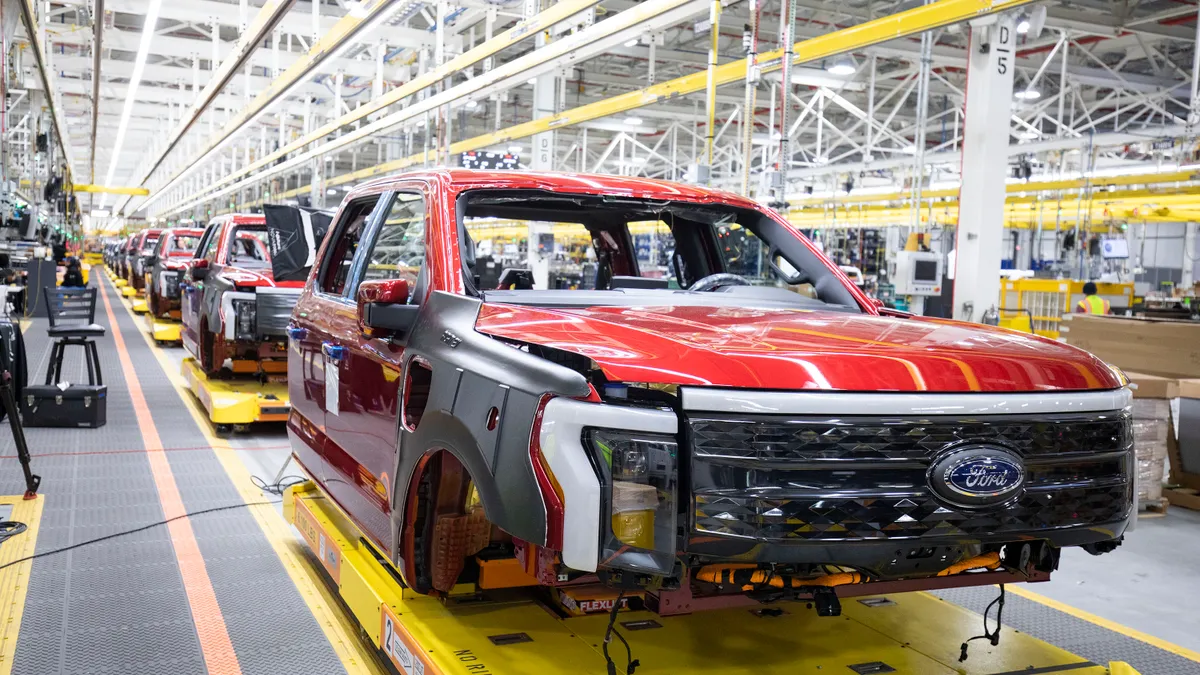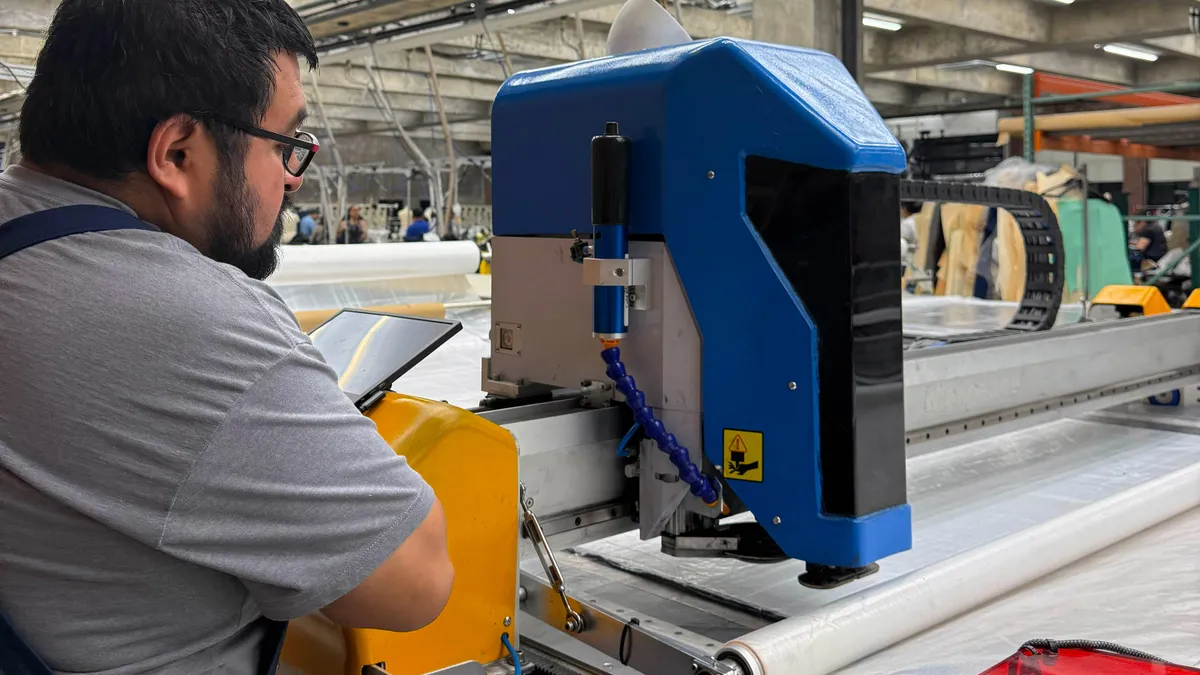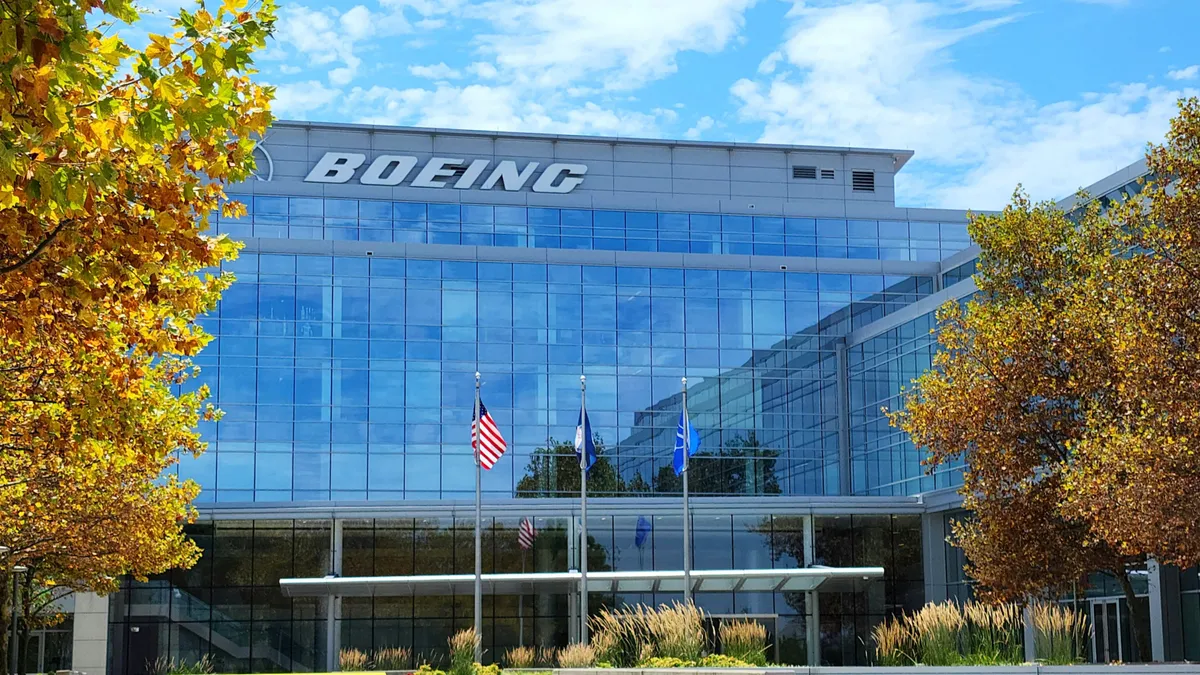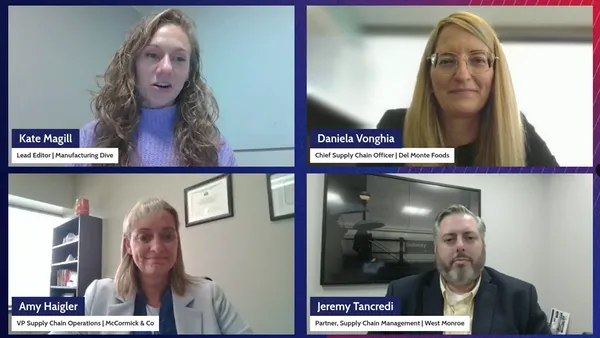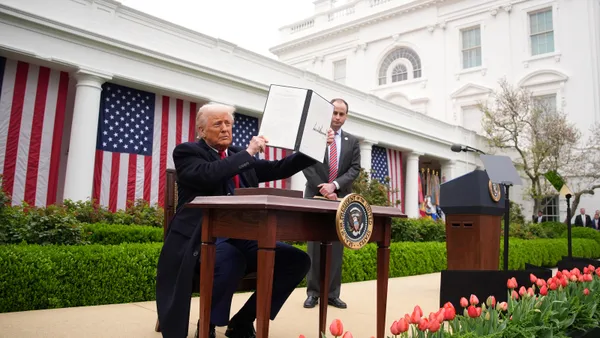WASHINGTON — Automakers are anxious for more federal guidance to ensure their vehicles qualify for the Inflation Reduction Act's lucrative electric vehicle tax credits.
The law, which has spurred auto manufacturers like Ford and GM to invest billions of dollars in production and supplier projects, opens huge market opportunities for the country's automakers — but only if they can ensure federal sourcing and assembly compliance.
How to ensure that's the case was a key topic of discussion among auto executives at last week's Battery Gigafactories USA 2023 conference in Washington, D.C.
While the IRA is not a "silver bullet," it does help U.S. auto manufacturers when it comes to better developing their supply chains, David Schwietert, chief policy officer for the industry group Alliance for Automotive Innovation, said during a panel at the conference. Schwietert spoke alongside executives from GM, Ford, Volkswagen and Hyundai regarding implementation of the Inflation Reduction Act.
However, there are “a lot of remaining questions” when it comes to the implementation of the law, Schwietert added.
Executives' concerns centered around the provision of the act that stipulates a certain degree of critical minerals in a vehicle must be extracted or processed in the U.S. or a country with which the U.S. keeps a free trade agreement.
The provision also mandates that at least 50% of components used in an EV battery be manufactured or assembled in North America, a percentage set to rise to 100% by 2029.
These regulations are proving a hefty lift for automakers that have previously heavily sourced from countries like China, which holds huge swaths of the world’s critical mineral stock and processing power.
In response, automakers have aggressively diversified their sourcing pools. GM Director of EV Policy Michael Maten noted the company has prioritized adding multiple suppliers for critical minerals, and that the IRA has incentivized even greater interest from global suppliers to work with GM.
Similarly, Ford Policy Strategist and Managing Counsel Evan Belser said the law influenced the automaker's decision to build its $3 billion battery plant in Michigan.
"The IRA is absolutely putting an emphasis on the U.S. market as a contender in the global race for EV manufacturing," Belser said.
Now, executives say they are nervously awaiting more guidance from the Department of Treasury over how to ensure their manufacturing and supply chains are in compliance with the law.
This is particularly cumbersome given the law's annual tightening of its sourcing requirements, including that by 2026, 80% of qualifying critical minerals used in a battery be in the U.S. or an allied country.
Executives noted their particular concern around the law's "foreign entities of concern" clause, which restricts the sourcing of materials from countries like China, Iran and Russia.
Maten noted GM’s desire to be able to source from “resource rich countries” that can provide the automaker with needed mineral supplies, while still complying with the law.
Automakers also want to know Inflation Reduction Act has longevity, without the threat of repeal under a federal administration change.
“We've also seen efforts . . . to repeal portions of the IRA which of course, you know, sends really mixed signals to manufacturers that are investing tens of hundreds of billions of dollars to meet these regulatory requirements that may or may not have supportive policies to back them,” Schwietert said.
Moving forward, Maten noted companies will increasingly push for innovation in battery manufacturing, underscoring the need for guidance that allows manufacturers to invest in production capacity and innovation with more confidence.
“The race is on ... for that young engineer who is really going to put this on its head at some point,” Maten said. “That is really the future, the race for that battery that has a faster charge, a longer charge, less expensive materials, and so on. That’s the future.”



